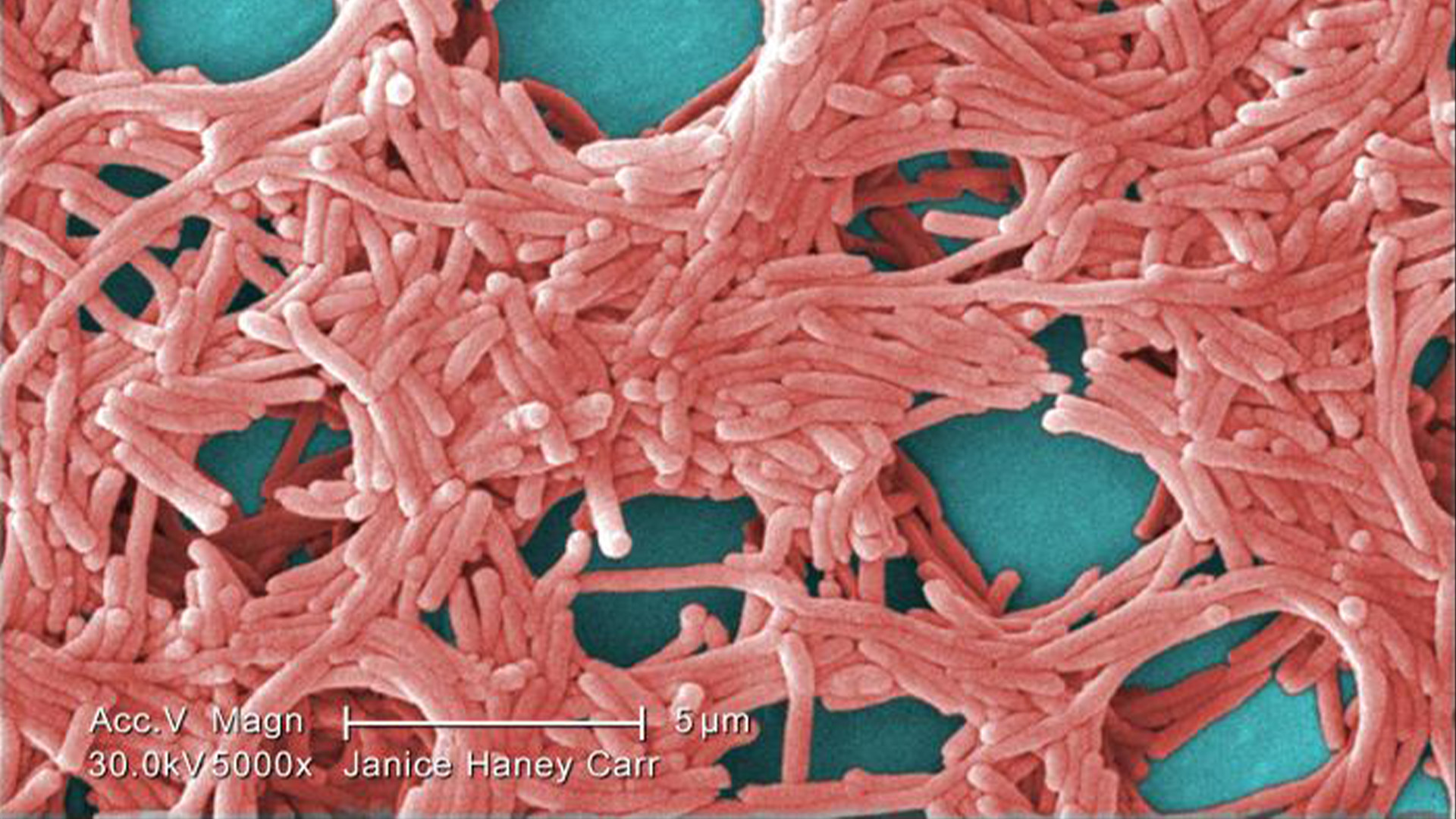
An unexpected surge in cases of Legionnaires' disease in two New Jersey counties has prompted the state health department to launch an investigation.
People catch Legionnaires' disease, a serious bacterial lung infection, after swallowing or inhaling water droplets that contain Legionella bacteria. The infection can't spread from person to person.
Legionella bacteria live in freshwater environments, such as lakes, but they can also grow in human-made water systems, such as hot-water tanks, cooling towers and showerheads. Most healthy people exposed to Legionella don't fall ill, but the disease can strike people ages 50 and older, those with a history of smoking, and those with chronic lung disease, weakened immune systems, cancer or diabetes.
Between August and early November, the New Jersey Department of Health (NJDOH) learned of 41 cases of Legionnaires' in two counties: 21 people in Middlesex County became sick and tested positive for Legionella, as did 20 in Union County. No deaths have been reported.
Related: New species of bacteria discovered after man is bitten by stray cat
"On average, each of these counties receives six to eight confirmed reports of Legionnaires' disease from August to October each year," so the recent bump in cases is unusual, the NJDOH noted in a statement.
"NJDOH is actively collaborating with local health departments in Middlesex and Union counties to investigate these cases and any potential sources of infection," the statement said. "In mid-October, NJDOH alerted local health departments, health care providers, and other public health partners in the area regarding the elevated number of reported cases. To date, a common exposure among cases has not been identified."
Symptoms of Legionnaires' disease — such as fever, chills, cough, shortness of breath, chest pain and muscle aches — can take up to two weeks to emerge, according to the NJDOH. People who develop such symptoms within two weeks of visiting Middlesex or Union county should seek medical attention, the department recommended.
"Early diagnosis is key to effectively treating Legionnaires' disease," which can be treated with antibiotics, Dr. Kaitlan Baston, acting health commissioner, said in the statement. "Although the risk of contracting Legionnaires' disease if you live in or have recently visited Middlesex or Union counties remains low, individuals who develop pneumonia-like respiratory symptoms should visit their health care provider immediately to be evaluated."
Ever wonder why some people build muscle more easily than others or why freckles come out in the sun? Send us your questions about how the human body works to community@livescience.com with the subject line "Health Desk Q," and you may see your question answered on the website!







